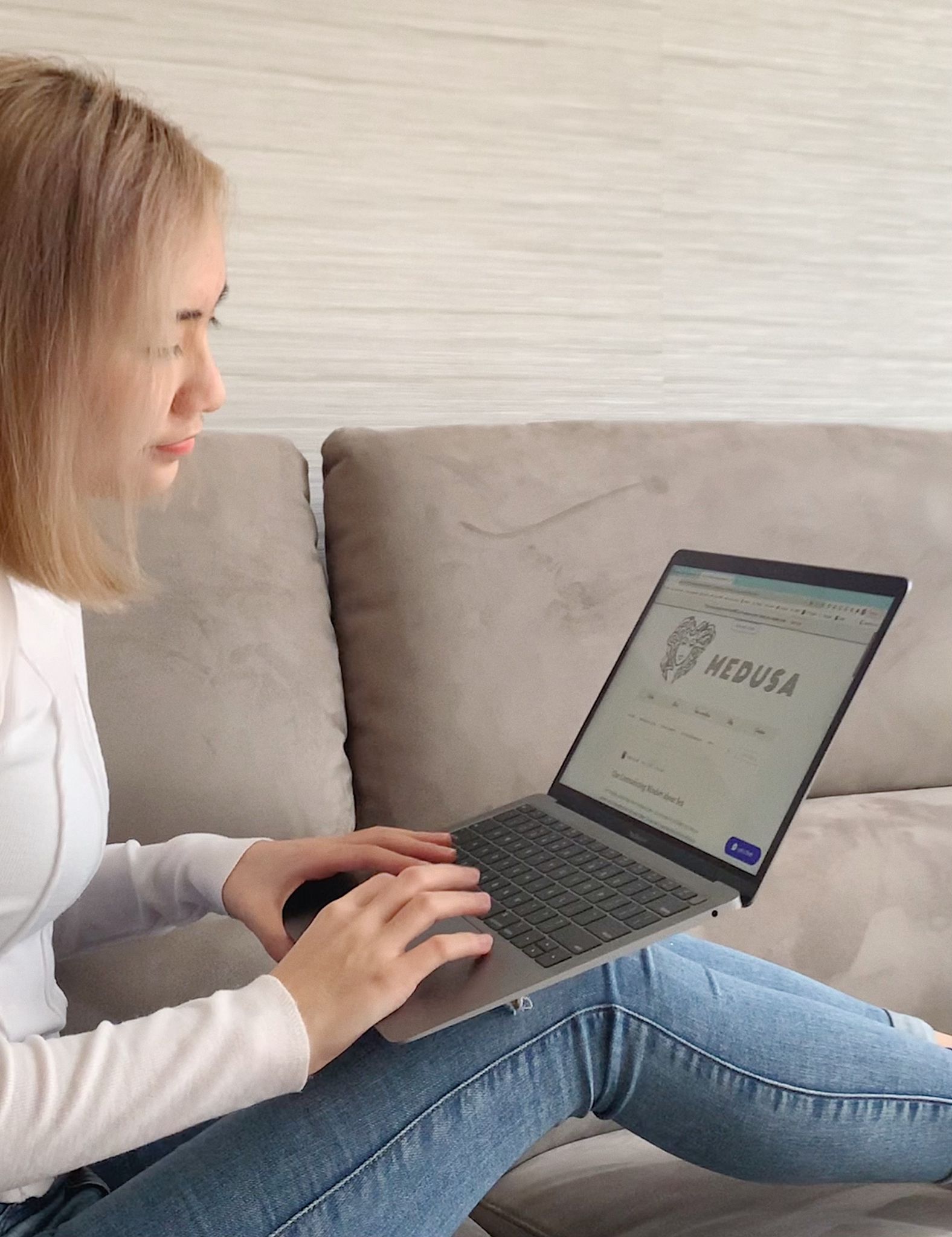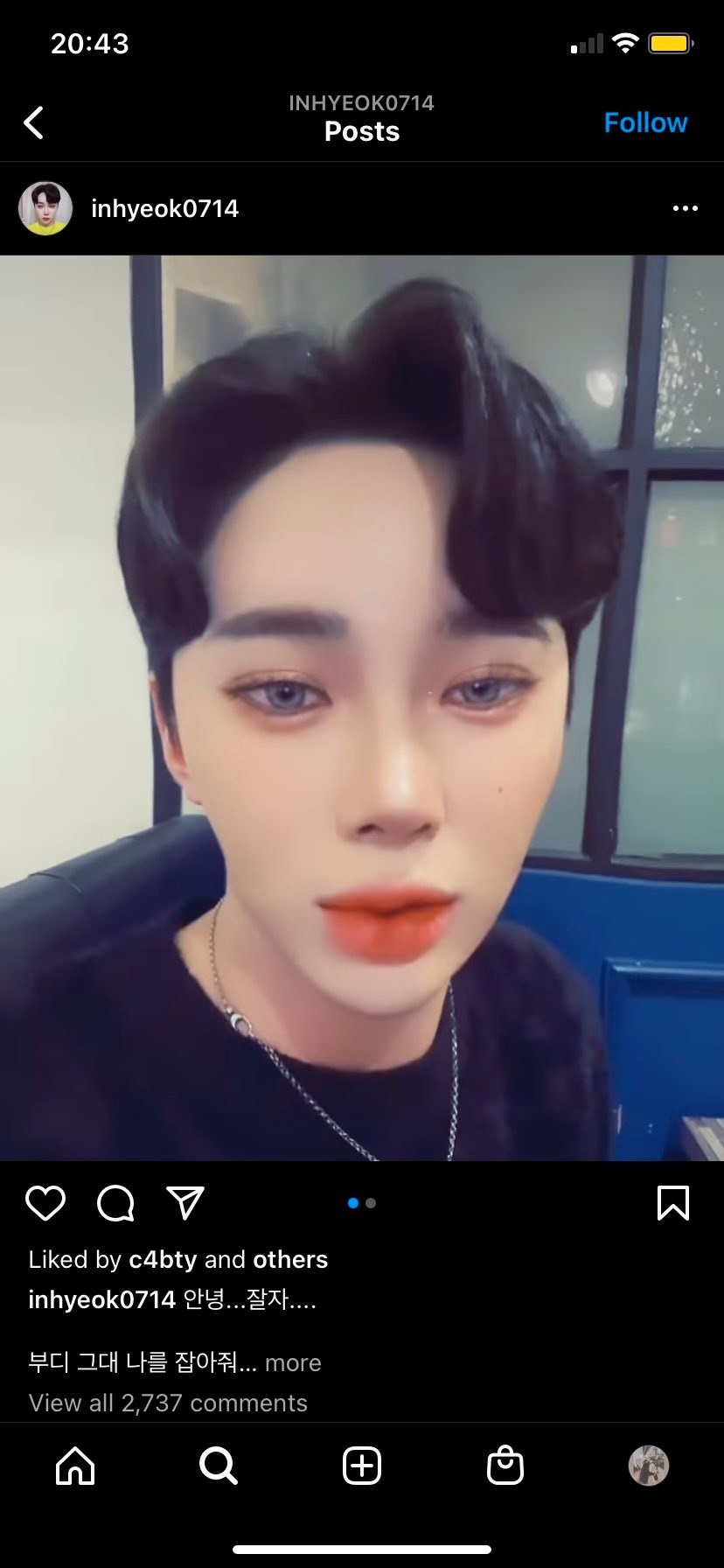Hilarie Fung Hiu-lam, a year 3 university student and her friends have been managing @medusasinnocent, an Instagram page dedicated to feminism since mid-September last year.
“Do you believe in gender equality? If yes, then welcome to the family of feminism!” she said.
It started off as an assignment, but Fung has enjoyed learning about feminism and proudly calls herself a ‘feminist’.

“I think feminists are villainized, but all we ever wanted is for everyone to be equal,” said Fung. The name @medussasinnocent, comes from the Greek myth about Medusa, the maiden turn monster after she was raped by Poseidon in the temple of Athena.
Even though Medusa is traditionally portrayed as a villain, she was actually a victim. Fung’s teammate thought there are similarities between the villiainization of Medusa and of feminists.
“I have never understood why boys are not allowed to cry and girls should cover up to protect themselves,” Fung said bitterly, “it is quite obvious that society is morbid enough to normalise toxic masculinity and sexualisation. We should stop asking people to do or not do things according to their genders.”
She emphasised that feminism is about providing support to all genders when they feel tied down by gender norms, rather then promoting females as the “better” gender.
The Instagram page Fung and her teammates run also includes a link to their blog “Medusa”. It covers a wide range of topics, including the objectification of South Asian women, hyper-sexualisation of male idols and women not being able to wear what they want without the fear of being judged.
The articles have accumulated hundreds of views and sparked healthy discussions online. Fung is delighted to see her efforts in promoting gender equality pay off.
“My mother does not let me hike alone and my ex felt embarrassed because I bought him a gift on his birthday,” said Fung.
Gender inequality affects both males and females. On Feb. 4, a male Korean volleyball player Kim In-hyeok committed suicide at the age of 26 at home.
He had been cyber-bullied for years for “wearing make-up in competitions”, and was accused of being gay and appearing in homosexual adult videos. Although he had personally cleared up these rumours, the cyber-bullying never stopped.

According to a survey conducted by The Women’s Foundation in Hong Kong that interviewed 1,768 male college students in June last year, most of the respondents agreed that they tended to act tough, were less likely to show their emotions and avoided being feminine, for example by refusing to be vulnerable.
“Why can’t males put on makeup? When has makeup been defined as something that is unique to women?” asked James Chiu Wing-shu, a year 3 nursing student who refers to himself as anti-patriarchist.
“It is a pity that the Korean volleyball player was bullied for something like this. Putting on makeup doesn’t affect his performance during competitions. The netizens should be ashamed of themselves,” Chiu said. He believes that gender equality means that everyone deserves to do what they want, regardless of their genders.
When he was younger, Chiu did not like to participate in traditional “boys’ activities”. He did not get along with boys, and would rather spend his time with girls. He also has taken an interest in making crafts, which is generally more of a “girly” activity. Eventually, he was bullied.
“The fact that we only have suits to wear in a formal setting is quite concerning,” Chiu said sarcastically.
He is also frustrated by gender stereotypes often perceived by the older generation.
“Gender inequality exists in many forms. I personally know that some boys are restricted from following their dreams as a fashion designer because their parents think that it is not a career for boys,” said Chiu.
He plans to promote gender equality through organising rallies after the pandemic. He hopes to build platforms that encourage people to embrace their true selves.
“Females can be outspoken and opinionated, males can show vulnerability and be pretty when they want to. Hopefully, this can be achieved within 10 years,” said Chiu.
Jade To, the senior programme officer of HER fund pointed out that gender inequality has become even more prominent during the pandemic.
Founded in 2004, HER Fund (Her Empowering Resources Fund) sponsors organisations that target grassroots and marginalised women, girls and trans people. They also help organisations strengthen their professional skills such as public speaking and financial management.
“Females from grassroot families are often the caregivers. Their priority is the children and the working fathers,” said To.
Since the start of the pandemic, the number of grassroots women who are unemployed or are forced to quit their jobs to take care of their children due to the suspension of face-to-face classes increased from 73.88% to 85.57%, according to a study by the Society for Community Organisation and The Chinese University of Hong Kong in 2021.
A 2019 study conducted by the Hong Kong Young Women’s Christian Association on the gender distribution ratio of housework found that over 80% of the chores were done by females. The study also interviewed stay-home mothers, who stated that “taking care of children” and “cooking continuously” were the most exhausting.
“Generally, public health and the allocation of anti-pandemic resources are the main concerns of the society. We are aware that marginalised women are suffering even more,” said To.
“Some LBT+ organisations in Hong Kong lose the opportunity to hold fund-raising events at such difficult times, they are also welcomed to apply for a fund to keep their organisations running,” said Winky Law, the development officer of HER Fund.
But To is “really excited” to see the growth of discussion about feminism online, as well as the social media pages that have been emerging.
“It’s all about pushing boundaries. We are happy to help gender groups that are interested in promoting gender equality. We believe collective effort benefits everyone,” said Law.
But To believed there are too many misconceptions about feminism.
“We have been funding different organisations that engage in public education. Not only on the stereotypes, but also on promoting the idea that gender is a wide spectrum and there should be equality for all,” said To.
To and Law hoped that HER Fund can promote individual and social impact to accelerate the journey of gender equality in Hong Kong.
“We believe females are not the only ones who benefit from gender equality. More opportunities and possibilities can be created if the traditional patriarchy views are abandoned,” concluded To.
《The Young Reporter》
The Young Reporter (TYR) started as a newspaper in 1969. Today, it is published across multiple media platforms and updated constantly to bring the latest news and analyses to its readers.

Justice for silent frontline cleaners

Surviving smart prison




Comments